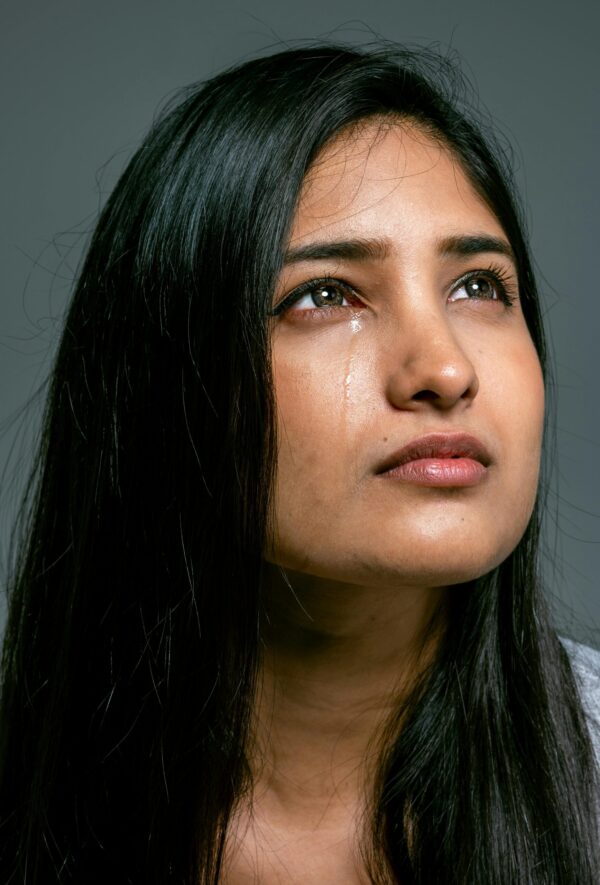Types of Therapy for Depression
Depression is the most common sited reason for seeking therapy and there are many modalities or types of therapy for depression. Depression is a common treatable mental health disorder that affects millions of people worldwide. It can significantly impact one’s quality of life, making it essential to seek effective treatment. Therapy for depression is a proven way to help individuals manage their symptoms, improve their mood, and regain a sense of normalcy. In this article, we will explore various types of therapy for depression, many are recommended by APA, their benefits, and how they can make a difference in the lives of those struggling with this condition. We’ll be doing a post focusing on each of the following types of therapy for depression, so if you want a more in depth understanding of each of them, check our news page over the next couple of weeks as we’ll publish an article on one of the below therapy types daily.
1. Cognitive Behavioral Therapy (CBT) for Depression
Cognitive Behavioral Therapy (CBT) is one of the most effective and widely used types of therapy for depression. It focuses on identifying and changing negative thought patterns and behaviors that contribute to depressive symptoms. Through CBT, individuals learn to challenge their negative thoughts, develop healthier thinking patterns, and engage in activities that promote a positive mood. For more depth on CBT and how it helps see our post on Cognitive Behavioral Therapy here.
2. Interpersonal Therapy (IPT) for Depression
Interpersonal Therapy (IPT) is a short-term treatment that focuses on improving interpersonal relationships and social functioning. This type of therapy for depression helps individuals understand and address the social and interpersonal issues that may contribute to their depression. By improving communication skills and resolving conflicts, IPT can lead to significant improvements in mood and overall well-being.
3. Psychodynamic Therapy for Depression
Psychodynamic therapy aims to explore the underlying psychological roots of depression. This approach delves into past experiences, unresolved conflicts, and unconscious processes that may contribute to depressive symptoms. By gaining insight into these factors, individuals can work through their emotions and develop healthier ways of coping with life’s challenges.
4. Behavioral Activation Therapy for Depression
Behavioral activation is a type of therapy for depression that encourages individuals to engage in activities that bring them pleasure and a sense of accomplishment. The goal is to break the cycle of inactivity and isolation that often accompanies depression. By participating in enjoyable activities, individuals can experience an improvement in their mood and overall mental health.
5. Dialectical Behavior Therapy (DBT)
Originally developed to treat borderline personality disorder, Dialectical Behavior Therapy (DBT) has also been found effective as a therapy for depression. DBT combines cognitive-behavioral techniques with mindfulness practices to help individuals regulate their emotions, tolerate distress, and improve interpersonal relationships. This comprehensive approach can be particularly beneficial for those with chronic or severe depression.
6. Acceptance and Commitment Therapy (ACT)
Acceptance and Commitment Therapy (ACT) is a type of therapy for depression that focuses on accepting negative thoughts and feelings rather than trying to eliminate them. ACT encourages individuals to commit to actions that align with their values, despite the presence of depressive symptoms. This approach helps individuals develop psychological flexibility and live a more fulfilling life.
7. Mindfulness-Based Cognitive Therapy (MBCT)
Mindfulness-Based Cognitive Therapy (MBCT) combines traditional cognitive therapy techniques with mindfulness practices. This type of therapy for depression aims to prevent relapse in individuals who have recovered from depression. By promoting mindfulness and self-awareness, MBCT helps individuals recognize early signs of depression and take proactive steps to manage their symptoms.
8. Group Therapy for Depression
Group therapy for depression involves one or more therapists working with a group of individuals who share similar experiences. This format provides a supportive environment where participants can share their stories, gain new perspectives, and learn from others. Group therapy can be particularly beneficial for those who feel isolated or alone in their struggles with depression.
9. Family Therapy for Depression
Family therapy for depression involves working with the family unit to address the dynamics and relationships that may contribute to an individual’s depression. By improving communication and resolving conflicts, family therapy can create a more supportive and understanding home environment. This type of therapy recognizes the significant impact that family interactions can have on an individual’s mental health.
10. Art Therapy for Depression
Art therapy for depression uses creative expression as a therapeutic tool. Through drawing, painting, and other forms of art, individuals can explore their emotions and gain insight into their experiences. Art therapy can be particularly helpful for those who have difficulty verbalizing their feelings, providing an alternative way to express and process emotions.
11. Music Therapy for Depression
Music therapy for depression involves using music to address emotional, cognitive, and social needs. This can include listening to music, singing, playing instruments, and composing music. Music therapy can help individuals express their emotions, reduce stress, and improve their mood.
12. Exercise and Physical Activity for Depression
While not a traditional form of therapy, regular exercise and physical activity have been shown to be effective in reducing symptoms of depression. Engaging in physical activity releases endorphins, which are natural mood lifters. Incorporating exercise into a comprehensive treatment plan can enhance the effectiveness of other therapies for depression.
13. Online Therapy for Depression
Online therapy for depression provides a convenient and accessible way for individuals to receive mental health support. Through video calls, messaging, and other digital platforms, individuals can connect with licensed therapists from the comfort of their own homes. Online therapy can be a flexible and effective option for those who have difficulty accessing in-person services.
Understanding the different types of therapy for depression is crucial in finding the right approach for each individual. Whether it’s Cognitive Behavioral Therapy, Interpersonal Therapy, or any other method, the key is to seek help and take the first step towards recovery. Each type of therapy for depression offers unique benefits and can be tailored to meet specific needs, helping individuals manage their symptoms and improve their quality of life.
If you or someone you know is struggling with depression, consider exploring the various options for therapy for depression. With the right support, it is possible to overcome this challenging condition and lead a fulfilling, joyful life.
For more information on therapy for depression and to find a therapist that fits your needs, we have some great online therapy options available BestOnlineTherapists.com.
Must Read News
The Benefits of Couples Therapy
The Benefits of Couples Therapy: Strengthening Relationships Through Communication and Understanding Maintaining a healthy and [...]
5 Ways to Know If You or a Loved One Need Therapy
5 Ways to Know If You or a Loved One Need Therapy In today’s world, [...]
Talk Therapy: What It Is and How It Helps
Talk Therapy: What It Is and How It Helps Talk therapy, also known as psychotherapy, [...]
Group Therapy Near Me: The Power of Collective Healing
Group Therapy Near Me: The Power of Collective Healing Group therapy is an increasingly popular [...]
What is Cognitive Behavioral Therapy
What is Cognitive Behavioral Therapy? Cognitive Behavioral Therapy (CBT) is a widely recognized and evidence-based [...]
The Value of Teletherapy vs. Face-to-Face Therapy: Choosing the Right Fit for You
The Value of Teletherapy vs. Face-to-Face Therapy: Choosing the Right Fit for You The landscape [...]
Our Method
We use a combination of consumer reviews and overall scores from multiple online platforms such as Forbes, Trustpilot, Google, Indeed, Glassdoor, and others to form an overall composite score that shows how well a company not only treats its customers but how they treat their employees as well. Our multiplatform composite score prevents companies from gaming one review-generating platform or another for good scores. We believe this method provides the best overall social proofing.

